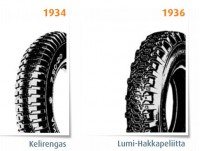RoSPA ‘disappointed’ at Christmas drink/drive figures
The Royal Society for the Prevention of Accidents (RoSPA) is disappointed that each day, an average of 200 drivers were arrested for offences related to drink driving during the annual Christmas crackdown.
Figures released by the Association of Chief Police Officers (ACPO) show that, in relation to drink driving, 6,550 drivers gave positive breath tests or refused or failed to give a test, during the campaign, which ran from November 29 to January 1 across England, Wales and Northern Ireland. This is around 8 per cent fewer than the previous year’s figure of 7,123. Of those arrested, 1,675 (26 per cent) were recorded as being under the age of 25.
A total of 191,040 people were stopped and breath tested by officers during the campaign – a 9 per cent rise compared to the previous year. Of those tested, the proportion who were subsequently arrested fell.
On the drug driving front, 513 field impairment tests were conducted (a rise from 360 during the previous year’s campaign), and 143 (28 per cent) of those tested were then arrested. The proportion of those arrested following a test rose.
Kevin Clinton, RoSPA’s head of road safety, said: “While it is good news that more tests were carried out and the proportion of drink drivers was lower than the previous Christmas, it is worrying that motorists are still choosing to get behind the wheel while over the limit.
“The provisional estimate for people killed in drink-drive accidents in the UK in 2012, shows an increase from the previous year. There were 280 deaths and 1,210 people seriously injured, contributing to almost 10,000 casualties in total, so we must do more to tackle this problem.
Lower limits in Scotland and Northern Ireland
“Ministers in Scotland and Northern Ireland have already decided to lower the drink-drive limit from 80mg of alcohol per 100ml of blood to 50mg of alcohol per 100ml, and RoSPA would like the Government in Westminster to follow suit so there would be the same lower limit across the whole of the UK.
“Likewise, the increase in the number of drivers arrested while being under the influence of drugs is also of grave concern: in Great Britain, in 2012,(2) we know that at least 32 people were killed and nearly 250 seriously injured in road accidents involving people who were impaired by illicit or medicinal drugs.”
Enforcing drug-drive laws has been difficult because of the complicated procedure the police need to follow to prove that a driver was unfit to drive, had taken drugs and was impaired by drugs. However, a new offence of driving with a specified controlled drug in the body above a specified limit was introduced last year. This will come into force once regulations setting the limit for each drug (which are currently being drafted) are introduced. This will make it much easier for the police to identify and catch drug drivers.



Comments